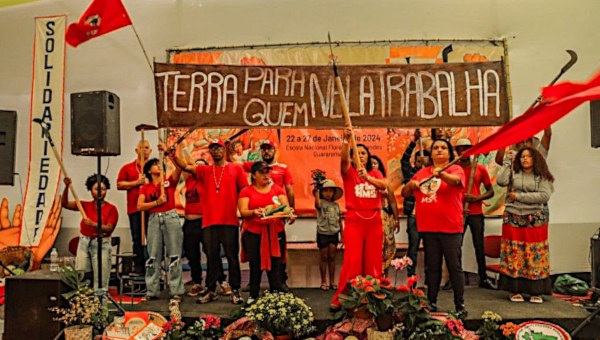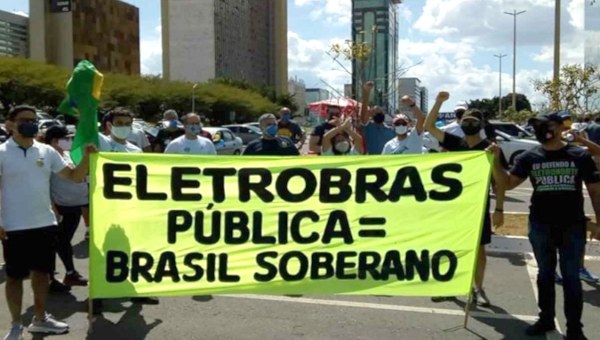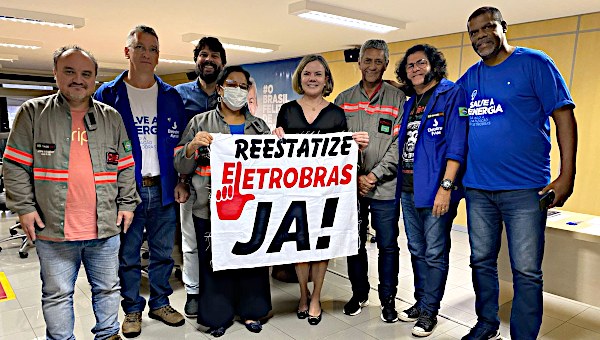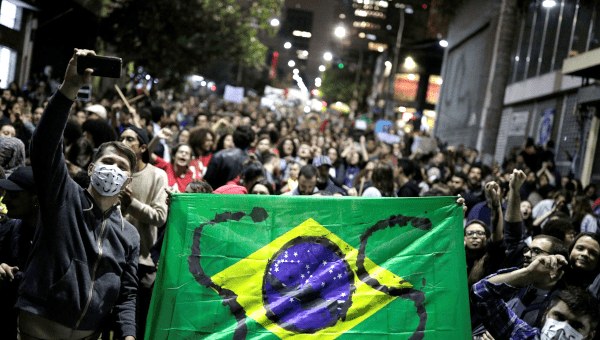Local Elections in Brazil: The Return of the Living Dead
Brazil held local elections this past November. These always take place midway through the legislative terms of the presidency and the national parliament, and hence, serve as an important temperature check on the general political mood. Usually, the party of the sitting president who was elected two years earlier receives a boost. Yet, since president Jair Bolsonaro is not a member of a political party, things are slightly more complicated this time.
Three issues stand out regarding the results. First, the old and new centre-right parties were the most successful. Second, candidates close to Bolsonaro had only limited success. Third, the Workers’ Party (PT) failed to elect a single mayor to any state capital for the first time since the return to democracy in the second half of the 1980s, while candidates from other left parties recorded successes in some state capitals.
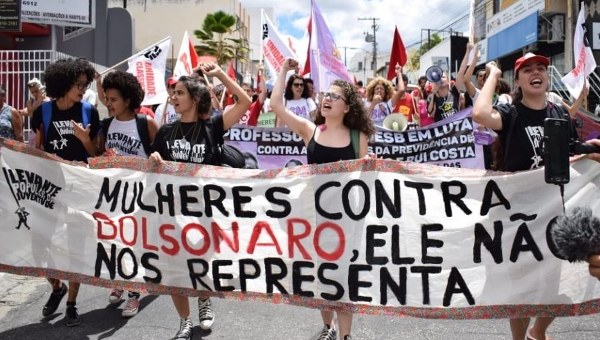
These results require some qualification before going into more detail. The results do not signal a crisis for Bolsonaro’s presidency since his approval ratings are between 36 and 40 per cent, a comparably good result for a sitting president, while his rejection rates in the previous month hovered between 31 and 40 per cent, depending on the polling. Since August 2020, Bolsonaro has enjoyed higher approval than rejection rates for the first time since May 2019. Rejection rates peaked during May and June 2020 after Minister of Justice Sergio Moro, the symbol of the anti-corruption stance, left the government and after a key witness in an alleged corruption investigation involving one of Bolsonaro’s sons, Fabio Bolsonaro, was arrested after 18 months on the run.
Few Allies For Bolsonaro
Nonetheless, the lack of success of candidates that were endorsed by Bolsonaro or stood close to him politically demonstrates that the president is not able to formulate a consistent political project. The three axes of his initial government – repressive state power, public security, and conservatism, embodied by Bolsonaro; market radicalism, embodied by Finance Minister Paulo Guedes; and anti-corruption, embodied by Sergio Moro – while not incompatible, never aligned well with each other.
Rather, Bolsonaro is governing in a haphazard manner, and his parliamentary base consists of the exact centre-right parties that won most of the mayorships in the recent elections. Most of these parties are composed of the old clientelist elite of Brazil, the very powers Bolsonaro initially claimed to have removed from power. These parties and elites do not represent fixed ideologies, but rather, clientelist relations: the exchange of favours between different powerful groups, as well as between powerful and less powerful groups, for the provision of jobs or posts in the public sector in exchange for votes.
This does not mean that these parties are entirely devoted to Bolsonaro’s project; indeed, they often openly reject the more authoritarian aspects of it, but as with every government since re-democratization, the parties are happy to negotiate deals with the presidency.
Part of the problem was that governments led by the PT also had to enter into such negotiations, since the PT never held more than 20 per cent of the seats in the lower chamber of parliament, and even less in the second chamber. The continuity of clientelism and the fact that Bolsonaro is unable to form a coherent political project, let alone align with a political party, is making itself felt in the election results.
Local elections take place in the 26 federal states of Brazil; Brasilia as a federal district does not participate. Since the Northern state of Amapá saw a three-week-long power blackout in November, the local elections in that state will take place in December, thus I will look at the results in 25 states, and focus on the state capitals, usually the largest cities in the states. The elections take place in two rounds. If a mayoral candidate does not win more than 50 per cent of the votes in cities with a minimum of 200,000 voters, then a second round takes place two weeks later. Eighteen state capitals went into a second round.
Candidates close to Bolsonaro won two state capitals: the richest state capital in terms of per capita income, Vitória, in Espirito Santo, and Rio Branco of the Amazonian state Acre, close to Bolivia. In the capital cities of Fortaleza and Belém, cities with high crime rates and household incomes three times below cities like São Paulo or Rio de Janeiro, candidates aligned with Bolsonaro finished second, with 48.2 and 48.3 per cent respectively, losing against left competitors.
These close races show that authoritarian candidates do appeal to voters. In Rio de Janeiro, Bolsonaro’s home turf, mayor Marcelo Crivella, from the party Republicanos, also aligned with Bolsonaro, entered the second round but lost against centre-right candidate Eduardo Paes from the Democrats, who won 64 per cent of the votes.
The Left Challenge To The Workers Party
Candidates of the centre-left or left conquered the mayorship of five state capitals and went into the second round of four more. As highlighted earlier, the PT won none of these. At its high point of municipal power in 2004, the PT held 9 of the 26 state capitals. Going into the elections, the party embarked on a disastrous strategy of not entering into coalitions with other left parties, hoping instead to present their brand better. This strategy failed, since the left vote was often split. For example, in Rio de Janeiro, four left candidates together polled 27 per cent of the vote in the first round, which would have usually been enough to propel a left candidate into the second round.
In Belém in the north of Brazil, the PT did not follow this strategy and chose not to run its own candidate, supporting, instead, Edmilson Rodrigues from the Socialism and Liberty Party (PSOL), who went on to win the first mayorship of a state capital for a PSOL candidate. Rodrigues had been a federal deputy in the first chamber of parliament and was replaced by Vivi Reis, making the current parliamentary group of the PSOL the first one in Brazilian history with a female majority, with six female and four male deputies.
The PSOL is a breakaway party from the PT, founded in 2004, consisting of a larger part of the socialist current that had left the PT or had been excluded from it like the first PSOL president, Heloísa Helena. Rodrigues was mayor of Belém for two terms between 1996 and 2004 when he was still with the PT but lost a renewed attempt at the mayorship by a narrow margin four years ago.
Guilherme Boulos, of the PSOL, despite receiving 41 per cent of the vote in São Paulo, the economic centre and largest city of the country, lost against a candidate from the established centre-right Brazilian Social Democratic Party (PSDB), Bruno Covas, who will now go into his second mandate. The candidate supported by Bolsonaro in São Paulo, Celso Russomanno, finished sixth in the first round.
For Guilherme Boulos, a sociologist and the leader of the Movement of Homeless Workers (MTST), this was his second attempt at political office – he was the PSOL’s presidential candidate in 2018. Getting 2.1 million votes in Brazil’s largest city is a major success and positions Boulos as the new leader of the Brazilian left.
Candidates from the centre-left Democratic Labour Party (PDT), under the leadership of Ciro Gomes, won the mayorships of Fortaleza and Aracajú in the Northeast, the capitals of Ceará and Sergipe provinces, respectively. Another centre-left party, the Brazilian Socialist Party (PSB), won two more mayorships, also in the Northeast, of Maceió and Recife. The Northeast is a traditional stronghold of these centre-left parties. Candidates of the PT made it into the second round in two state capitals, Vitória and Recife, while Manuela d’Avila of the Communist Party of Brazil (PcdoB) got into the second round in the Southern city of Porto Alegre, winning 45.4 per cent of the vote. D’Avila was the vice-presidential candidate in the 2018 presidential race with Fernando Haddad from the PT.
With these results, the PSOL clearly positioned itself as the new face and generation of the left, and it remains an open question how the leaders of the PT will respond to the situation. Both 38-year-old Boulos and 39-year-old d’Avila maintain friendly relations with former Brazilian and PT president Lula da Silva, who is 75 years old. Both present a challenge to the fact that the PT is not able to move on from Lula’s 40-year legacy, a legacy that started when Lula assumed the leadership of the newly founded PT in 1980 in the wake of the metal workers’ strikes in the São Paulo region, of which he was the undisputed leader.
The Old Right Hangs On
In sum, Bolsonaro’s allies won the mayorships of two state capitals, left candidates won five, and the diverse centre-right parties won the other 18 mayorships of state capitals. Of those, the party of former president Michel Temer, the Brazilian Democratic Movement (MDB), won five, the Democrat Party (DEM) of the powerful house speaker Rodrigo Maia won four state capitals, and the other established centre-right party the PSDB won another four, while another six went to candidates from four other centre-right parties.
This shows that while the MDB and the PSDB could not field successful candidates in the last presidential election, they are not to be discounted for the future. On the other hand, the PT, which lost the 2018 presidential election with a respectable result, clearly needs more than just an anti-Bolsonaro stance, given the new and old competitors on the left.
Furthermore, a recent phenomenon is the high rate of voter abstention. Voting in Brazil is mandatory, and non-voters have to declare a reason or pay a small fine. Some of the higher abstention rate might be due to the pandemic, but there is also a historic trend to staying away from elections. In Rio de Janeiro, for example, abstention was 16 per cent in 2004, 24 per cent in 2016, and 32 per cent during the first round this year. Similar results have been recorded in other large cities.
With the steady persistence of the traditional centre-right power structures and the remarkable decline of the PT, the Brazilian political landscape is haunted by two political zombies. The clientelist elite that dominates the country across various political systems is a living zombie and cannot die until new forms of political and social relations are established. The PT, as a partially successful challenger to this elite, is a dying zombie, unable to come back to life.
A crucial difference with the early 1990s when Lula had just lost the elections in 1989, and a decade of privatization and deregulation was about to come, is that the main power struggle today is not taking place between neoliberal forces and a social democratic left, but rather, between the open authoritarianism of the New Right under Bolsonaro and the hidden authoritarianism of the traditional elites who demonstrate their allegiance to democracy and diversity in public, yet maintain structures of violence and oppression in practice. Nonetheless, the hidden authoritarianism of Brazilian democracy always provided some space, even if limited, for initiatives and conquests by the popular masses. However, this space has shrunk enormously under the New Right’s grip on government structures.
The elections also saw the success of several black female local deputies and mayors, which is still newsworthy despite a majority of the Brazilian population being black. Ana Lúcia Martins of the PT became the first black local deputy in Joinville, in Santa Catarina. Joinville is the largest city in the state with 600,000 inhabitants, of which 18 per cent are black. In Curitiba, the capital of Paraná, a city of two million with a 20 per cent black population, Carol Dartora of the PT is the first black local deputy. Both candidates received racist online bullying and death threats.
Political, Racist and Gender Violence
Similar threats have been made against Suellen Rosim, the first black female mayor of the city of Bauru, a city of 380.000 inhabitants in the state of São Paulo, with a black population of 27 per cent. Rosim’s party, Patriota, is a conservative and religious party, aligned with the evangelical church Assembleia de Deus. Current president Bolsonaro was a member until January 2018. According to news reports, 80 per cent of all black candidates in Brazil have received threats on social media during the elections.
Online support campaigns and demonstrations against the racist threats levelled against the elected politicians were instituted, and police successfully investigated some of the perpetrators. Racism is defined as a crime in the Brazilian constitution of 1988.
The assassination of political candidates is also a frequent feature of Brazilian political life. Eighty-four candidates were killed before the first round of elections, and another 80 were victims of attacks but survived. In the state of Pará, one of the most violent states in terms of conflicts over land, 17 candidates were killed, as well as another 13 in the Northeastern state of Pernambuco.
Leila Arruda, who had run as a PT mayoral candidate in the rural town of Curralinho in Pará, with about 30,000 inhabitants, and who finished third, was killed by her former husband five days after the first round of elections. The couple divorced in 2017. The 49 year-old Arruda had a degree in pedagogy and was the founder of the association MOEMA, Movement of Female Entrepreneurs in Amazonia (MOEMA). The murder led to demonstrations in both Curralinho and Belém, and party leaders like former president Dilma Rousseff and current PT president Gleisi Hoffmann denounced the crime.
The tragic death of Arruda points to a wider problem that has been aggravated in recent years, fueled by the anti-feminism of most current government leaders. According to numbers provided by the Forum Brasileiro de Segurança Pública, 2019 saw a 7.2 per cent increase in feminicides, with a total of 1310 murdered women, while the first half of 2020 saw an increase of 1.9 per cent.
Toward the 2022 Presidential Election
The success of the centre-right parties led to much talk about a new centre-right alliance of three political figures: the governor of the state of São Paulo, João Doria of the PSDB, one of many former Bolsonaro allies who broke with the president, television showmaster Luciano Huck, who thought about running for president for the PSDB in 2018, and former Minister of Justice Sergio Moro.
It is early days for speculating about a presidential candidate, but Doria, especially, could be a serious contender for Bolsonaro. He has made some effort to run a more organized action to contain the COVID-19 pandemic and drew additional ire from the president by purchasing 46 million doses of the vaccine Coronavac, produced by the Chinese company Sinovac together with the São Paulo-based Instituto Butantan. This amount would be enough to cover the entire population of his state. Bolsonaro himself has already announced that he would not run on a ticket with the same vice-president, Hamilton Mourão, a reflection of the constant disagreements between the two. Mourão presented himself at various instances as the more realistic and moderate of the two but did not abstain from demonstrating his positive approval of the military dictatorship from 1964 to 1985. One could say that Mourão represents the military wing of the government that acts in the background, but he also made clear he would rather run for a post in the Senate, the second chamber in 2022.
Much will depend on who will be contending in 2022 in order to evaluate the chances of a second term for Bolsonaro. Current polls indicate he would win a second race, but there are no serious contenders yet. It seems most of the influential military figures and corporate leaders would prefer a more predictable and professional political leadership from the traditional right-wing elite.
Bolsonaro’s approval ratings nosedived when he confronted the Supreme Court and Congress head on, leading rallies of supporters who demanded the closure of both institutions in May and June 2020. After the key witness in the probe against his son and several right-wing supporters were arrested during those months, Bolsonaro stopped his confrontative course and regained popularity.
Much of this is ascribed to the emergency basic income that the federal government introduced in April in response to the COVID-19 crisis, first with an amount of 600 reals (three times the maximum value of the Bolsa Familia), and then with an additional 300 reals for the final months of this year. Sixty-eight million Brazilians received the emergency income, a third of all 210 million Brazilians. An emergency basic income in the amount of 500 reals had been proposed by the opposition parties, but Bolsonaro adopted it and increased the amount.
In many states in the North and Northeast of the country, the emergency income led to an historic drop in inequality, since many households had more money at their disposal than usual. But because this is a temporary measure, and the second wave of COVID-19 infections has already begun in several states like Rio de Janeiro, São Paulo, Bahia, and Mato Grosso do Sul, with hospitals unable to treat all severe cases of COVID-19, the year 2021 may be decisive for the popularity of the president. Extreme poverty is at an historic high, with 25 per cent of the population, 52 million people, earning less than half the minimum wage. Ten million Brazilians are going hungry, and due to the pandemic, unemployment stands at 14 per cent.
At the same time, Brazilian agribusiness is exporting record amounts of soy and other commodities. The Brazilian real has lost about 30 per cent of its value against the dollar since the beginning of the pandemic, which makes inputs for agribusiness like machines and fertilizer more expensive, but on the other hand, makes export commodities cheaper. The record export numbers have led to drops in the domestic supply of rice, beans, and cooking oil, the basic staple foods, whose prices saw considerable inflation. Producers are diverting these products increasingly to export markets, since it increases their profits.
The price of rice has risen by 50 per cent since January, the price of beans by 60 per cent, the price of milk by 30 per cent, and the price of usually cheap cooking oil, i.e., soy-based oil, by a whopping 80 per cent. Some researchers claim that these prices will go down in January with the new harvest season, but this remains to be seen, as several states in the main agricultural regions are suffering from a lack of rainfall, which usually starts in November.
The mixture of food inflation and the end of the emergency income in 2021 could prove a literal death sentence for that 25 per cent of the population just getting by. At the same time, a second wave of COVID infections, the non-existing, and at best, chaotic federal response to the pandemic, further lockdowns, and a dire economic situation can also spell a death sentence for the popularity of Bolsonaro. •


